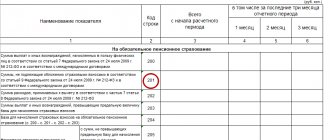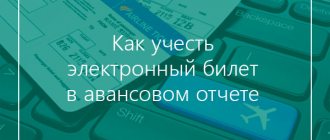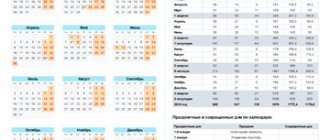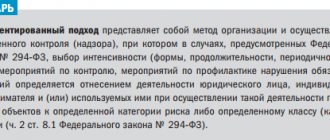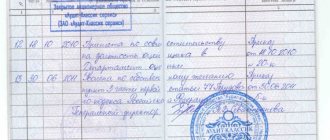Whatever the director is, “good” or “bad,” one way or another he pursues the goal of minimizing expenses on “unnecessary” things, in his opinion. Among the many offers that regularly come to his table, he would hardly be able to buy everything with the money that he has (and even the credits would not be enough). In this regard, he often has to think about the profitability of a particular event. It’s a pity, but often directors “flirt” with cutting costs and resort to not entirely legal methods of saving. One of our clients told a story about how in his organization the manager forbade the accountant to pay per diem to a business trip employee with the amendment that he would be reimbursed for food expenses based on the receipts provided. Actually, we were asked about how legal this is and how to avoid facing fines in the future. Not knowing the answer to this question at the very beginning, we tried to analyze the current legislation. Fortunately, the answer was found, and it turned out to be negative. True, no one heeded our advice, but that doesn’t matter anymore.
Today we will tell you how daily allowances differ from food expenses, whether the employer is obliged to compensate for them, what is generally meant by the concept of “travel allowances” and what is the best way to proceed in a situation where an employee needs to be sent to perform his official duties outside the city of his permanent residence.
What exactly is the difference?
Let's start with the fact that compensation for food expenses is the actual reimbursement by the employer of the money that was spent by the employee on the purchase of one or another food industry product for personal needs. From the point of view of labor legislation, the employer will be obliged to reimburse funds in this regard only if a corresponding agreement was previously concluded between him and the employee, and in writing. They could have agreed verbally, but we will not consider this case now. Daily allowances are payments separate from wages, which in theory should compensate the employee for all the inconveniences associated with his actual residence during a business trip in another city or country. The company is obliged, in accordance with the requirements of the Labor Code of the Russian Federation, to provide the employee with the opportunity to rent housing or book a hotel room, as well as provide those funds (daily allowance) that the employee can spend on personal needs if necessary. As we can see, the legislation does not say anything specifically about nutrition. Consequently, we conclude that the management does not have an obligation as such to “buy food” for the employee, because he is already paid the nth amount of money to cover similar costs, which cannot be said about rental housing, which is a separate expense item. In our example, the director decided to “cheat” by not paying daily allowances, but by compensating for food expenses. A priori, in this case, the company's management spends less money. For this, by the way, a posted worker can sue his employer. So, directors, keep this in mind, because the stingy pays twice.
The procedure for accounting for travel expenses in 2021 - 2021
In fact, there is almost no such thing as a daily allowance. The employer can pay for a business trip depending on what budget he is counting on. The distance of the trip, the country or city where you will have to go, as well as a huge number of additional factors are taken into account. However, the bill clearly states the amount on which income tax is or is not charged. For a business trip within Russia, this amount reaches 700 rubles, for trips abroad – 2500 rubles.
And it is also important to know that the tax code provides for minimum daily travel expenses in 2021, which are equal to 100 rubles per day. You cannot allocate an amount to an employee that is less than the established minimum.
Naturally, this issue cannot be avoided without nuances. If a trip abroad is planned, the time the employee spends on the territory of the Russian Federation is paid at a rate of 700 rubles, after crossing - 2500 rubles. The moment of intersection is recorded with a passport stamp.
Once again, it is worth recalling that the employer independently decides the issue of how much money the employee can receive. The main thing is to consolidate these figures in local acts, so that they can later be taken into account in tax reports. If some expenses are not taken into account, then the enterprise may face a huge number of problems in the future. And, of course, the higher the daily allowance, the higher the tax on it.
In fact, it is high time to change this law, because employers indicate minimum contributions for employees, and a person receives the rest of the scheme in an envelope. The state budget suffers from all this, so the issue has long required some kind of change.
And we can also say that if a one-day business trip is made, but it involves traveling outside the country, then the employee can count on payment that is equal to 50% of the established norm - that is, 1250 rubles. Otherwise, the amount of daily travel expenses in 2021 will remain the same.
Today the issue of the pandemic is relevant, because the whole of Russia is in quarantine, but no one is canceling business trips, because somehow they have to work. Travel for work is not prohibited. However, there are some nuances. Every employer who sends an employee on a business trip must take into account the rules of Rospotrebnadzor and also take out insurance for the employee.
If a virus infection is suspected, the employee must seek assistance under their insurance policy. Quarantine conditions are not dangerous, so there will be no additional payments to travel expenses in this case, that is, the payment of daily travel allowances does not change.
Each employer determines the daily allowance amount independently - there are no legally established daily allowance standards for commercial organizations. The employer must register the established amount of daily allowance in the LNA.
It is important to remember that the amount of daily allowance is important for the purposes of paying taxes and insurance premiums.
Per diem may not be accrued if the employee can return from a trip daily. This takes into account the transport accessibility of the business trip location.
If an employee independently decides to stay in the locality where he was sent, then the employer has the right not to pay him expenses, including hotel payments and daily allowances.
The head of the company must take into account the specifics of the trip, transport accessibility and other factors.
The tax base
If the employer nevertheless decides to act according to the law, he will in any case have to take care of how to correctly calculate all taxes. In particular, compensation for food expenses is subject to personal income tax, like any other payment specified in the agreement, not counting the mandatory ones. The Ministry of Finance answers this question in detail in its letter dated October 14, 2009 No. 03-04-06-01/263. There, the curious reader may discover that it is necessary to charge a certain amount of insurance premiums from these compensations, and also take these payments into account as expenses for income tax purposes. The same opinion is shared by the courts of individual districts of the Russian Federation, but there is also an opposition opinion. For example, there is a resolution of the Federal Antimonopoly Service of the North-Western District dated March 23, 2009 No. A05-8942/2008, in which the arbitrators came to the conclusion that compensation for food expenses was made to the employee in the direct interests of the company (after all, he, while on a business trip, carries out direct instructions from the employer). Therefore, these expenses should not be subject to personal income tax. The problem once again boils down to the fact that fragmented judicial practice creates solid ground for interpreting laws in their own interests, which remains in the hands of corrupt structures. Unfortunately, this is the reality of our lives and, at least now, the average citizen will not be able to do anything about it, no matter how much he or she wants.
GLAVBUKH-INFO
An employee of the organization is sent on a business trip to the territory of a foreign state. To pay for daily allowance, an amount was issued from the cash desk in accordance with local regulations - 360 euros (at the rate of 60 euros per day for six days on a business trip in a foreign country, excluding the day of return).Upon returning from a business trip, the employee submitted an advance report within the prescribed period with documents confirming his presence on a business trip during the specified period.
The euro exchange rate set by the Bank of Russia was (conditionally):
— on the date of issue of foreign currency to the employee — 80 rubles/euro;
- on the last day of the month in which the advance report is approved - 82 rubles/euro.
The business trip is related to the production of products and is not aimed at acquiring non-current assets.
For profit tax purposes, income and expenses are determined using the accrual method.
Other travel expenses, as well as payment of daily allowance in rubles for the day of return, are not considered in this consultation.
Account correspondence:
Labor Relations. Procedure for reimbursement of travel expenses
When sending an employee on a business trip, the employer is obliged to reimburse the employee, including additional expenses associated with living outside the place of permanent residence (daily allowance) (part 1 of article 168 of the Labor Code of the Russian Federation, clause 11 of the Regulations on the specifics of sending employees on business trips, approved Decree of the Government of the Russian Federation dated October 13, 2008 N 749 (hereinafter referred to as the Regulations)).
The procedure and amount of reimbursement of expenses associated with business trips are determined by a collective agreement or local regulations (part 4 of article 168 of the Labor Code of the Russian Federation, paragraph 2 of clause 11 of the Regulations).
Daily allowances are paid for each day of a business trip, including weekends and non-working holidays, as well as for days en route, including during forced stops along the way, taking into account the provisions provided for in clause 18 of the Regulations (paragraph 3 of clause 11 Regulations).
Payment of daily allowance to an employee in foreign currency when the employee is sent on a business trip outside the territory of the Russian Federation is carried out in the amounts determined by the collective agreement or local regulations, taking into account the features provided for in clause 19 of the Regulations (paragraph 2 of clause 16 of the Regulations).
When an employee travels from the territory of the Russian Federation, the date of crossing the State Border of the Russian Federation is included in the days for which daily allowances are paid in foreign currency, and when traveling to the territory of the Russian Federation, the date of crossing the State Border of the Russian Federation is included in the days for which daily allowances are paid in rubles. The dates of crossing the State Border of the Russian Federation when traveling from the territory of the Russian Federation and to the territory of the Russian Federation are determined by the marks of the border authorities in the passport or (in case of missing marks) by travel documents (clauses 18, 19 of the Regulations).
Thus, the employee is paid daily allowances in foreign currency for the days of the business trip, excluding the day of crossing the border when returning to the Russian Federation.
Daily allowances are paid to the employee in advance (on account) (clause 10 of the Regulations).
In this case, the advance payment for daily subsistence allowance was issued in cash in foreign currency, which is permitted by the legislation of the Russian Federation (clause 16 of the Regulations, clause 9, part 1, article 9 of the Federal Law of December 10, 2003 N 173-FZ “On Currency Regulation and Currency Control ", Resolution of the Presidium of the Supreme Arbitration Court of the Russian Federation dated March 18, 2008 N 10840/07).
Upon returning from a business trip, the employee is obliged, within a period not exceeding three working days from the date of return to work, to submit an advance report on the amounts spent with attached supporting documents. Checking the advance report, its approval by the manager and the final settlement on the advance report are carried out within the period established by the manager (clause 26 of the Regulations, paragraph 2, clause 6.3, clause 6 of Bank of Russia Directive No. 3210-U dated March 11, 2014 “On the procedure for maintaining cash registers”). operations by legal entities and a simplified procedure for conducting cash transactions by individual entrepreneurs and small businesses").
The actual length of stay of an employee on a business trip is determined in the manner established by clause 7 of the Regulations (as a rule, according to travel documents presented by the employee upon returning from a business trip, or on the basis of other documents provided for in this paragraph).
Accounting
Costs for business trips related to production, including daily allowances, are included in expenses for ordinary activities (clause 5 of the Accounting Regulations “Expenses of the Organization” PBU 10/99, approved by Order of the Ministry of Finance of Russia dated May 6, 1999 N 33n) .
These expenses are recognized when the conditions provided for in clause 16 of PBU 10/99 are met. With regard to expenses in the form of daily allowance payments, the specified conditions can be considered fulfilled after the manager approves the advance report (with attached supporting documents confirming the actual duration of the business trip) submitted by the employee after returning from the business trip.
Until the advance report is approved, funds for daily allowance issued to the employee on account (in advance) are not recognized as an expense and are reflected as a receivable from the employee to the organization (clause 16 of PBU 10/99).
The amount received by the employee in euros is converted into rubles at the rate valid on the date of the advance payment. The employee's debt on the advance payment due to changes in the euro exchange rate is not subsequently recalculated. Accordingly, expenses in the form of daily allowances issued to an employee in advance in foreign currency are recognized in the assessment in rubles at the Bank of Russia exchange rate in effect on the date of issue of currency from the cash desk. This follows from paragraphs 4, 5, 6, 9, 10 of the Accounting Regulations “Accounting for assets and liabilities, the value of which is expressed in foreign currency” (PBU 3/2006), approved by Order of the Ministry of Finance of Russia dated November 27, 2006 N 154n , Appendix to PBU 3/2006. Therefore, exchange rate differences in settlements with the employee for paid daily allowances do not arise in the organization’s accounting.
Accounting records for the transactions under consideration are made in the manner established by the Instructions for the application of the Chart of Accounts for accounting of financial and economic activities of organizations, approved by Order of the Ministry of Finance of Russia dated October 31, 2000 N 94n, and are shown in the following table of entries.
Personal income tax (NDFL)
Daily allowances for a business trip abroad, paid in accordance with the legislation of the Russian Federation, are not included in the employee’s income subject to personal income tax in the amount of no more than 2,500 rubles. for each day of being on a foreign business trip (paragraph 12, paragraph 3, article 217 of the Tax Code of the Russian Federation).
Conversion of daily allowances issued in foreign currency into rubles for the purpose of calculating personal income tax is carried out at the rate established by the Bank of Russia on the last day of the month in which the advance report was approved (clause 5 of Article 210, clause 6 of clause 1 of Article 223 of the Tax Code of the Russian Federation ).
Thus, the amount of daily allowance paid to the employee in euros to determine the employee’s taxable income is RUB 29,520. (360 euros x 82.00 rubles/euro).
The amount of daily allowance not subject to personal income tax is 15,000 rubles. (2500 RUR x 6 days). The difference is 14,520 rubles. (29,520 rubles - 15,000 rubles) is subject to personal income tax at a rate of 13% (clause 1 of article 209, clause 1 of article 210, clause 1 of article 224 of the Tax Code of the Russian Federation).
Personal income tax on excess daily allowance is calculated by the employer on the last day of the month in which the advance report is approved, is withheld from any income paid to the employee (for example, from wages), and is transferred to the budget no later than the day following the day the income is paid (p.p. 1, 3, 4, 6, Article 226, paragraph 6, paragraph 1, Article 223 of the Tax Code of the Russian Federation).
Insurance premiums
Daily allowances paid in the amount established by the collective agreement are not subject to insurance contributions in full (Part 2, Article 9 of the Federal Law of July 24, 2009 N 212-FZ “On Insurance Contributions to the Pension Fund of the Russian Federation, the Social Insurance Fund of the Russian Federation , Federal Compulsory Medical Insurance Fund", clause 2 of article 20.2 of the Federal Law of July 24, 1998 N 125-FZ “On compulsory social insurance against accidents at work and occupational diseases”, see also Letters of the Federal Social Insurance Fund of the Russian Federation dated November 17, 2011 N 14-03-11/08-13985, Ministry of Health and Social Development of Russia dated 08/06/2010 N 2538-19, clause 4 of the Pension Fund Letter dated 09/29/2010 N 30-21/10260).
Corporate income tax
When issuing an advance to an employee for a business trip, no expenses arise in the tax accounting of the organization (Clause 14, Article 270 of the Tax Code of the Russian Federation).
Daily allowances as part of business travel expenses relate to other expenses associated with production and (or) sales, and are recognized on the date of approval of the advance report (paragraph 4, paragraph 12, paragraph 1, Article 264, paragraph 5, paragraph 7, Article 272 Tax Code of the Russian Federation).
Restrictions on the amount of daily allowance. 25 of the Tax Code of the Russian Federation does not provide for - daily allowances are recognized as expenses in the amount determined in the local regulatory act of the organization.
In this case, the amount of travel expenses paid in foreign currency by issuing an advance to the employee is recalculated into rubles at the rate established by the Bank of Russia on the date of issuing the advance to the employee (clause 10 of Article 272 of the Tax Code of the Russian Federation).
Let us remind you that expenses are recognized as justified and documented expenses (clause 1 of Article 252 of the Tax Code of the Russian Federation). The document confirming expenses in the form of daily allowance is the employee’s approved advance report with attached documents confirming the duration of the business trip.
Contents of operations
| Debit | Credit | Sum | Primary document | ||
| Rub. | Euro | ||||
| On the date of issue of foreign currency for reporting (rate - 80.00 rubles/euro) | |||||
| Funds in foreign currency were issued to the employee for payment of daily allowance on a business trip abroad. (360 x 80.00) | 71 | 50 | 28 800 | 360 | Employee statement Account cash warrant |
| As of the date of approval of the advance report | |||||
| Reflected travel expenses in terms of daily allowances | 20 (25, etc.) | 71 | 28 800 | 360 | Advance report |
| As of the date of withholding personal income tax on excess daily allowance from the employee’s salary (rate - 82.00 rubles/euro) | |||||
| Personal income tax is withheld from the amount of excess daily allowance paid to the employee over the standard established by law (14,520 x 13%) | 70 | 68 | 1888 | Tax accounting register (Tax card) | |
——————————
Let us recall that entries in the accounts of assets and liabilities, the value of which is expressed in foreign currency, are made in rubles, and for assets and liabilities listed in clause 7 of PBU 3/2006 - simultaneously in the currency of settlements and payments (clause 20 of PBU 3/2006, paragraph 24 of the Regulations on maintaining accounting and financial statements in the Russian Federation, approved by Order of the Ministry of Finance of Russia dated July 29, 1998 N 34n). As a general rule, when determining the tax base for personal income tax, the amount of income subject to taxation at a tax rate of 13% is reduced by the amount of tax deductions provided for in Art. Art. 218 - 221 of the Tax Code of the Russian Federation (clause 3 of Article 210, clause 1 of Article 224 of the Tax Code of the Russian Federation). In this case, in the table of postings, personal income tax is calculated without taking into account any tax deductions. The entry for the payment of personal income tax to the budget is not included in the posting table.
L. V. Guzheleva
Consulting and analytical center for accounting
and taxation
| Contents of operations | Debit | Credit | Sum | Primary document | |
| Rub. | Euro | ||||
| On the date of issue of foreign currency for reporting (rate - 80.00 rubles/euro) | |||||
| Funds in foreign currency were issued to the employee for payment of daily allowance on a business trip abroad. (360 x 80.00) | 71 | 50 | 28 800 | 360 | Employee statement Account cash warrant |
| As of the date of approval of the advance report | |||||
| Reflected travel expenses in terms of daily allowances | 20 (25 and etc.) | 71 | 28 800 | 360 | Advance report |
| As of the date of withholding personal income tax on excess daily allowance from the employee’s salary (rate - 82.00 rubles/euro) | |||||
| Personal income tax is withheld from the amount of excess daily allowance paid to the employee over the standard established by law (14,520 x 13%) | 70 | 68 | 1888 | Tax accounting register (Tax card) | |
ÂÂÂ
| < Previous | Next > |
The employee is "out of order"
Since we have already touched upon the topic of replacing daily allowances to compensate for the daily expenses of a posted employee, it would not be out of place to talk about what a director should do in a situation where an employee, for example, gets sick and therefore cannot perform his job duties. It is logical to assume that the daily allowance is paid to him when he is actually “in service” and does the work that is assigned to him. We want to make a reservation right away - this is a misconception. From the point of view of the Labor Code of the Russian Federation, daily allowances should be paid to an employee exactly in the amount of how many days the employee worked while outside the city of his permanent residence. Even if he fell ill on the first day of his arrival in another city or country and spent the entire period of the business trip “lying in bed,” the management is obliged to accrue him a daily allowance. Here again, the company's management may be tempted to negate the need for expenses from which they will have no return. It is worth noting that a similar approach to solving this issue is a punishable act that can result in a large fine.
Insurance premiums based on daily allowance
If the daily allowance does not exceed the limits specified above - in the amount of 700 and 2500 rubles. accordingly, they are not subject to insurance contributions for compulsory pension insurance, compulsory medical insurance, contributions for insurance against temporary disability and in connection with maternity (clause 2 of Article 422 of the Tax Code of the Russian Federation).
Based on the data in the previous example, an employee sent on a business trip to Moscow for 3 days will be subject to insurance contributions in the amount of 900 rubles.
But daily allowances are not subject to contributions for injuries at all , regardless of their amount, as specified in the company’s internal document. This is stated in paragraph 2 of Art. 20.2 of the Federal Law of July 24, 1998 No. 125-FZ. A similar position is reflected in the letter of the Social Insurance Fund dated November 17, 2011 No. 14-03-11/08-13985.
Daily allowances should be subject to contributions for injuries and accidents only if the employee receives them in an amount that is greater than the limit established by internal regulations (Article 20.2 of the Federal Law of July 24, 1998 No. 125-FZ “On compulsory social insurance against accidents”) cases at work and occupational diseases").
For a wide foot
There is another interesting side to the question. Let’s assume that an employee has signed an agreement with the manager, which stipulates the employer’s obligation to compensate for all food costs during a business trip. In order to protect the rights of the company, we want to recommend it to its director, discuss the approximate, or better yet, the exact amount of the money that he can return. It is necessary to do this for the reason that a business trip employee suddenly decides that he can “deny nothing” to himself by visiting expensive restaurants, for example. If the agreement does not contain the exact amount of compensation payments, the company will have to reimburse the costs of any checks presented by the employee. Otherwise, the trial will most likely end in favor of the “runaway” employee.
If they feed
The company must pay a per diem when the host pays for meals. Despite the fact that someone pays for the employee’s food, this cannot serve as a basis for refusing to pay the daily allowance.
A business trip is a trip by an employee by order of the employer to carry out an official assignment outside the place of permanent work.
Judges have repeatedly spoken out on this issue. For example, the Supreme Court drew attention to the fact that employers do not pay daily allowances for specific purposes, and this payment covers the employee’s personal expenses during a business trip (decision dated March 4, 2005 No. GKPI05-147).
Therefore, it is impossible to replace the daily allowance with payment for food and other services. They must be paid before the business trip in the amount established by the company’s internal local regulations. We draw the attention of readers that this approach must be used not only for business trips around Russia, but also for business trips abroad.
What else can an employee count on?
Compensation for food costs is not the only thing an employee going on a business trip can ask for. Among the most popular needs are payment for mobile communications, compensation for Internet costs, purchase of additional warm clothing if we are talking about a trip to the Far North, additional money in case the booked hotel room has a number of inconveniences and he will have to rent other housing on his own . In other words, the requirements may be completely different. It is important for the employer to understand that he can refuse many of them, being right. In particular, additional expenses for mobile communications are the employee’s whim, the Internet is also a whim, additional clothing is a whim, etc. At the same time, the employer must provide the employee with exactly the kind of housing that will allow the employee to stay comfortably at the place of business trip, and also pay exactly the amount of daily allowance that is regulated by current legislation. In any case, no one can forbid the director from buying his dear subordinate a hat with earflaps made of arctic fox, so that he does not freeze while working in the Arctic Circle. The main thing is that all expenses are, if possible, agreed upon in advance. This will help solve the main problem of all business trips – who owes what to whom.
Composition of travel expenses
A business trip is a trip made by an employee outside the location of his permanent job to perform the tasks assigned to him by the employer (Article 166 of the Labor Code of the Russian Federation). However, neither this definition nor the rules for paying travel-related expenses apply to people who perform their work while traveling, since in this situation their own rules apply (Articles 166, 168.1 of the Labor Code of the Russian Federation).
Thus, the concept of a business trip refers to persons registered for work who, from time to time, on the instructions of the employer, for some period of time leave the place of their work assigned to them in employment contracts (clauses 2, 3 of the appendix to the Decree of the Government of the Russian Federation of October 13. 2008 No. 749).
When sending an employee on a business trip, the employer will have to not only maintain his job for the duration of the task, but also pay a salary (based on average earnings) and compensate for expenses arising in connection with the trip (Article 167 of the Labor Code of the Russian Federation). The types of these expenses are listed in Art. 168 Labor Code of the Russian Federation:
- to pay for travel;
- for compensation of living expenses;
- daily allowance;
- others made with the knowledge of the employer.
Daily allowances are one of the mandatory components of travel expenses and occupy an independent place among them, although they are not always paid. For one-day business trips, the business traveler is not entitled to daily subsistence allowance (clause 1 of the appendix to Resolution No. 749).
Should an accountant not carry out obviously erroneous instructions from the director?
If the director intends to “defraud” a posted worker, only he and his company will bear responsibility for this. The accountant in this case is a person who is hardly involved in what is happening. In the event of a conflict situation between a boss and a subordinate regarding cash payments, the accountant can always refer to his immediate supervisor, who gave the appropriate instructions. This is especially true for ordinary accountants (not chief accountants), who, in theory, do not make independent decisions on this or that issue, and therefore do not bear responsibility. So, it’s up to them to decide which side to take.
conclusions
Based on the above, we inform you that “replacing” daily allowance payments with compensation for food expenses is an illegal act, which will inevitably be followed by a fine. Further, all compensatory payments must be reflected in tax and accounting records, which obliges the company's management to tax these amounts. Moreover, the employer has the right not to compensate for the food costs of his subordinates, because these expenses are not included in the number of mandatory payments, while he retains the opportunity to help his employee financially.
Thank you very much for your attention and see you again!
Per diem - other expenses of the taxpayer
Subclause 12, clause 1, art. 264 of the Tax Code of the Russian Federation (hereinafter referred to as the Tax Code of the Russian Federation) it is determined that business trip expenses, including daily allowances, are recognized as other taxpayer expenses related to production and sales. Of course, provided that these expenses meet the criteria of Article 252 of the Tax Code of the Russian Federation, that is:
1) are related to the generation of income;
2) justified;
3) documented.
Moreover, from January 1, 2009, the amount of daily allowance paid when an employee is sent on a business trip is not standardized, as a result of which the organization has the right to take into account for profit tax purposes daily allowance in the amount of actual expenses, the payment procedure - provided that their amount is fixed by the local regulatory act of the employer .
Regulatory authorities hold a similar opinion on this issue. In particular, this opinion is set out in letters of the Ministry of Finance of Russia dated August 18, 2009 No. 03-03-06/1/533 and dated September 21, 2009 No. 03-03-06/1/604. The capital’s tax authorities also stand in solidarity with the financiers, as indicated by the letter of the Federal Tax Service of Russia for Moscow dated June 18, 2009 No. 16-15/061727.
Day trip
We have already mentioned above that an organization may decide to pay daily allowances for one-day business trips within the Russian Federation. Since the payment of such daily allowances is not provided for by the Regulations, this expense is not considered justified. Moreover, according to the opinion of the arbitrators, set out in the decision of the Supreme Court of the Russian Federation dated 03/04/2005 No. GKPI05-147 “On the dismissal of the application to invalidate the first sentence of paragraph 15 of the Instruction of the Ministry of Finance of the USSR, the State Committee for Labor of the USSR and the All-Russian Central Council of Trade Unions dated 04/07/1988 No. 62 “On on official business trips within the USSR”, daily allowances are paid to the employee provided that he lives outside his place of permanent residence for 24 hours, and if the employee has the opportunity to return daily to his place of permanent residence, then daily allowances are not paid to the employee.
An expense recognized as unfounded is not recognized as a taxable expense. This is indicated by paragraph 49 of Art. 270 of the Tax Code of the Russian Federation, according to which expenses that do not meet the criteria named in paragraph 1 of Art. 252 of the Tax Code of the Russian Federation.
Thus, the organization will not be able to take into account for profit tax purposes daily allowances paid for one-day trips; therefore, the source of their coverage will be the company’s own funds remaining after taxation.
A similar conclusion is contained in the explanations of the tax authorities given in the letter of the Federal Tax Service of Russia for the city of Moscow dated February 10, 2006 No. 20-12/11312. The courts also agree with this point of view, as indicated by the resolution of the Federal Antimonopoly Service of the North-Western District dated March 1, 2006 in case No. A05-5899/2005-12.
The situation is different with personal income tax (NDFL).



